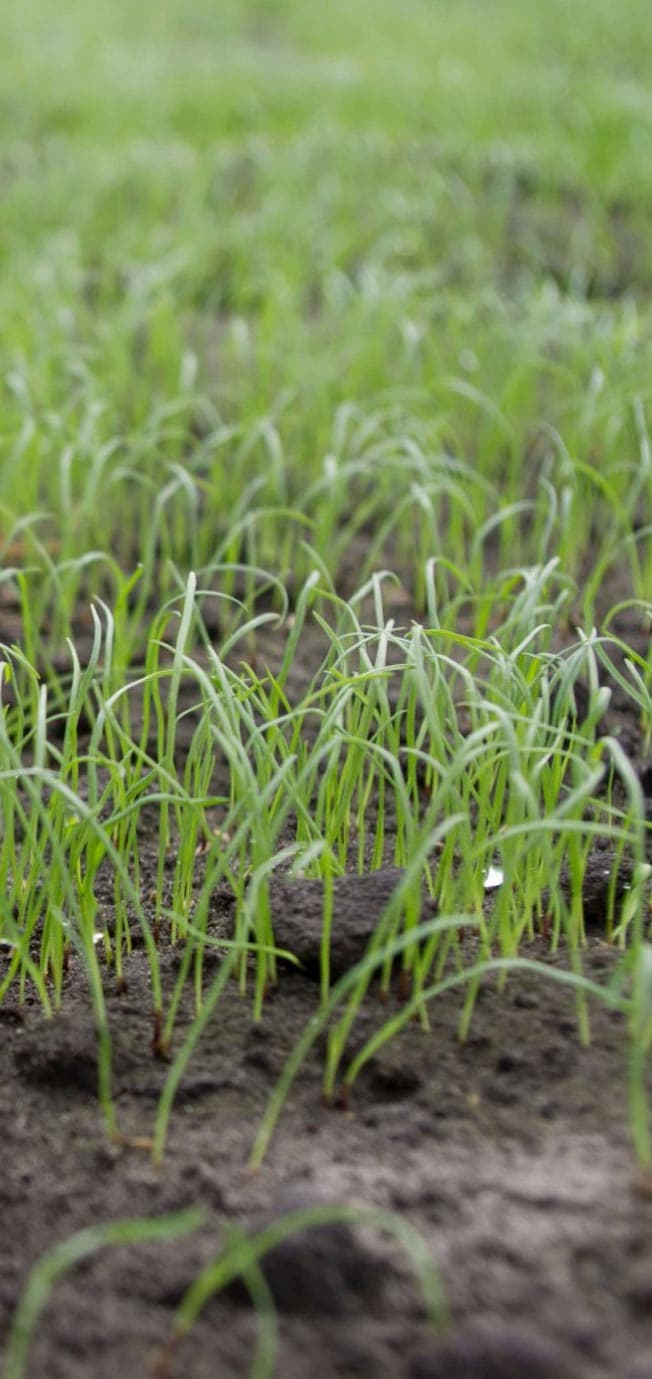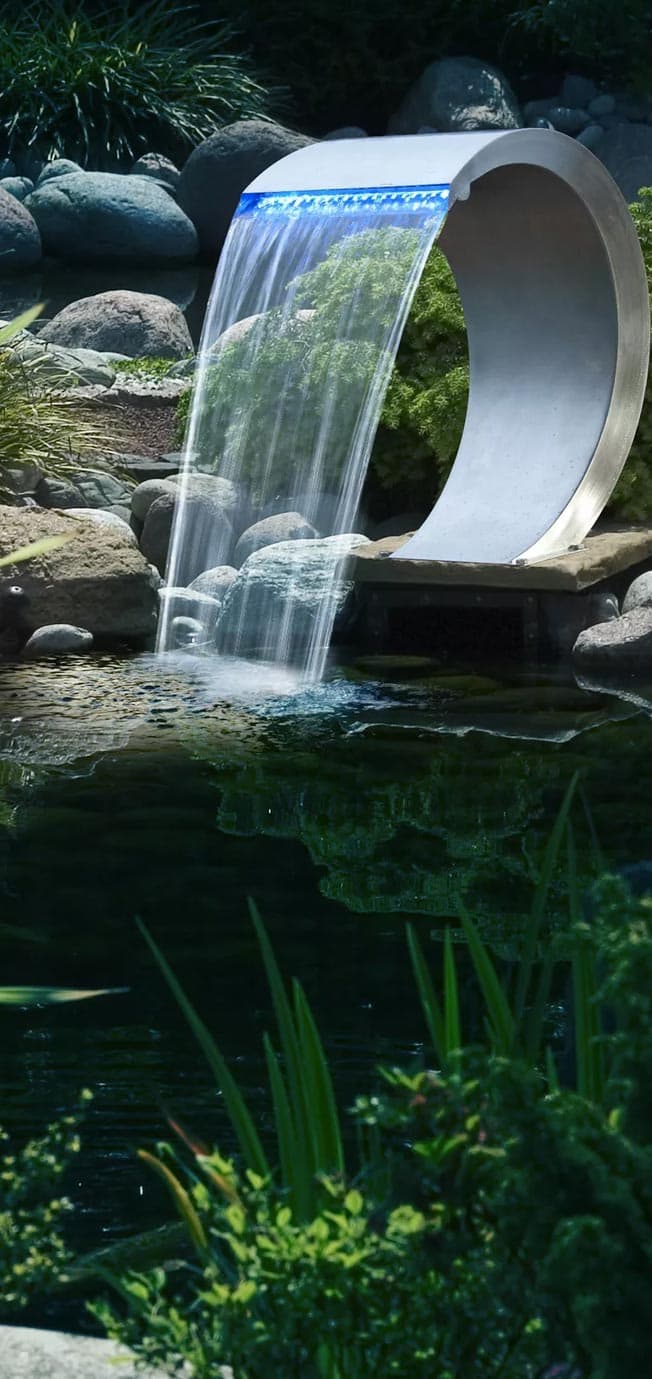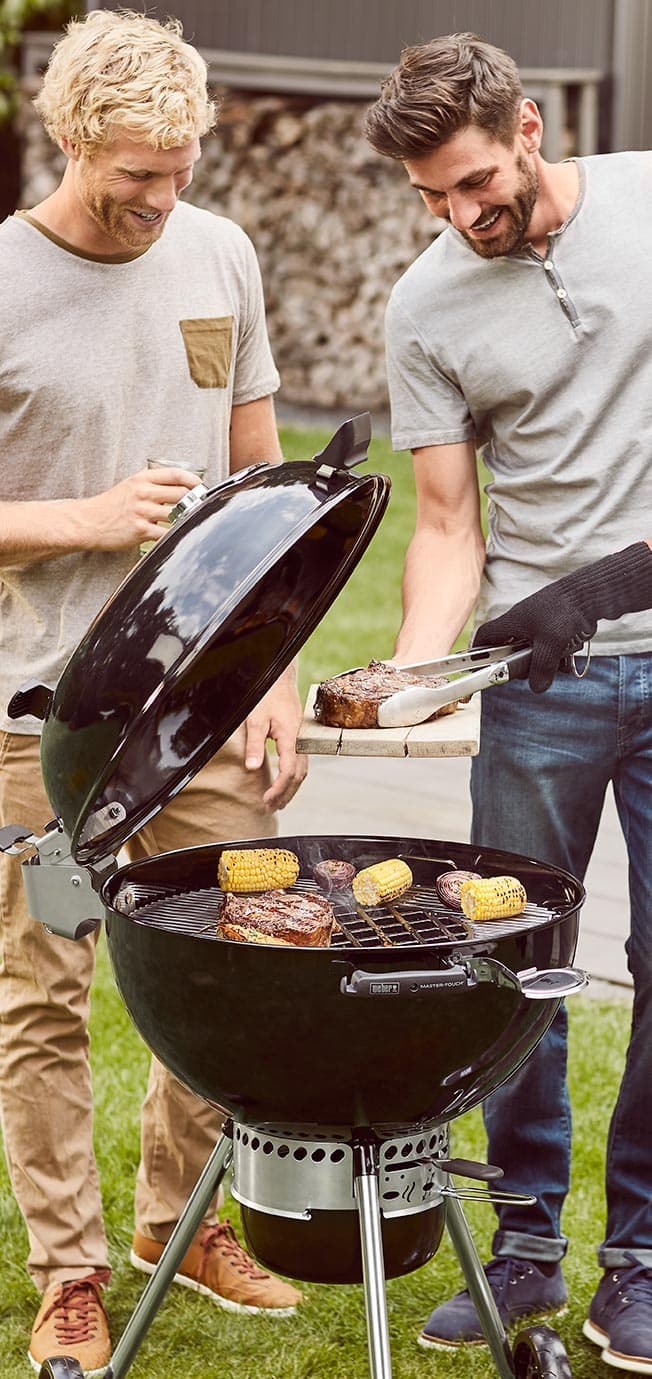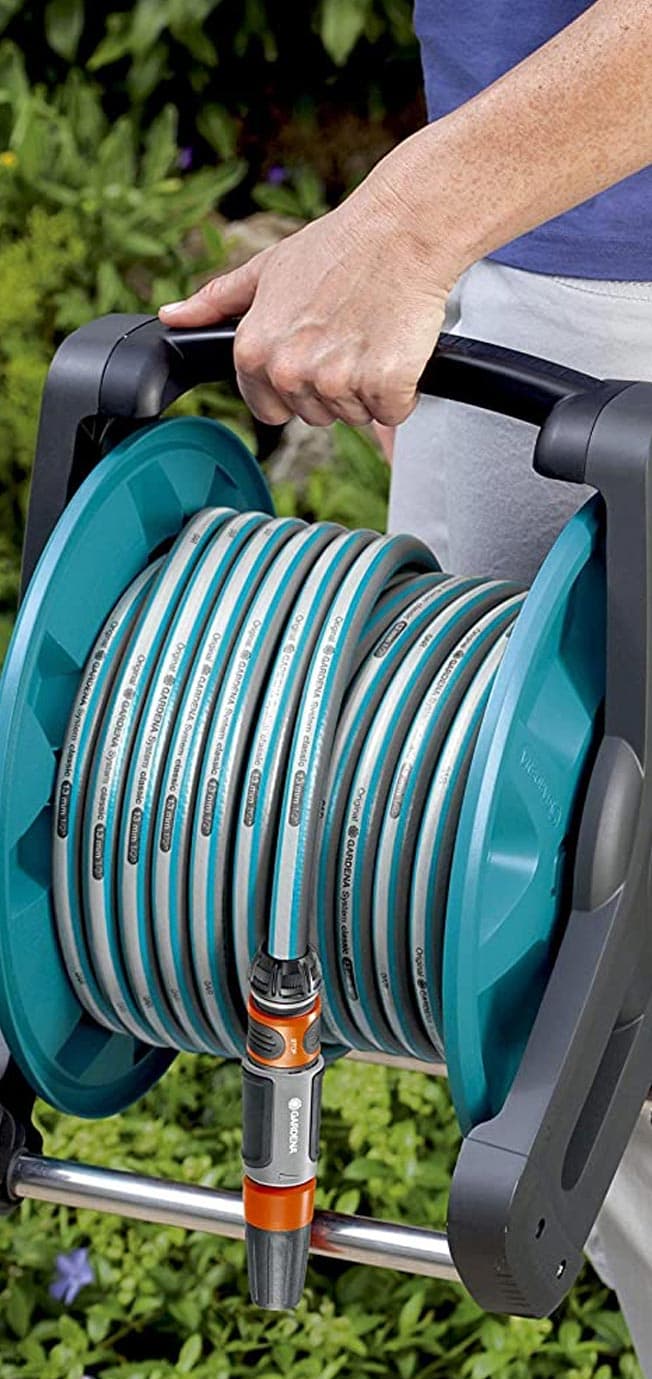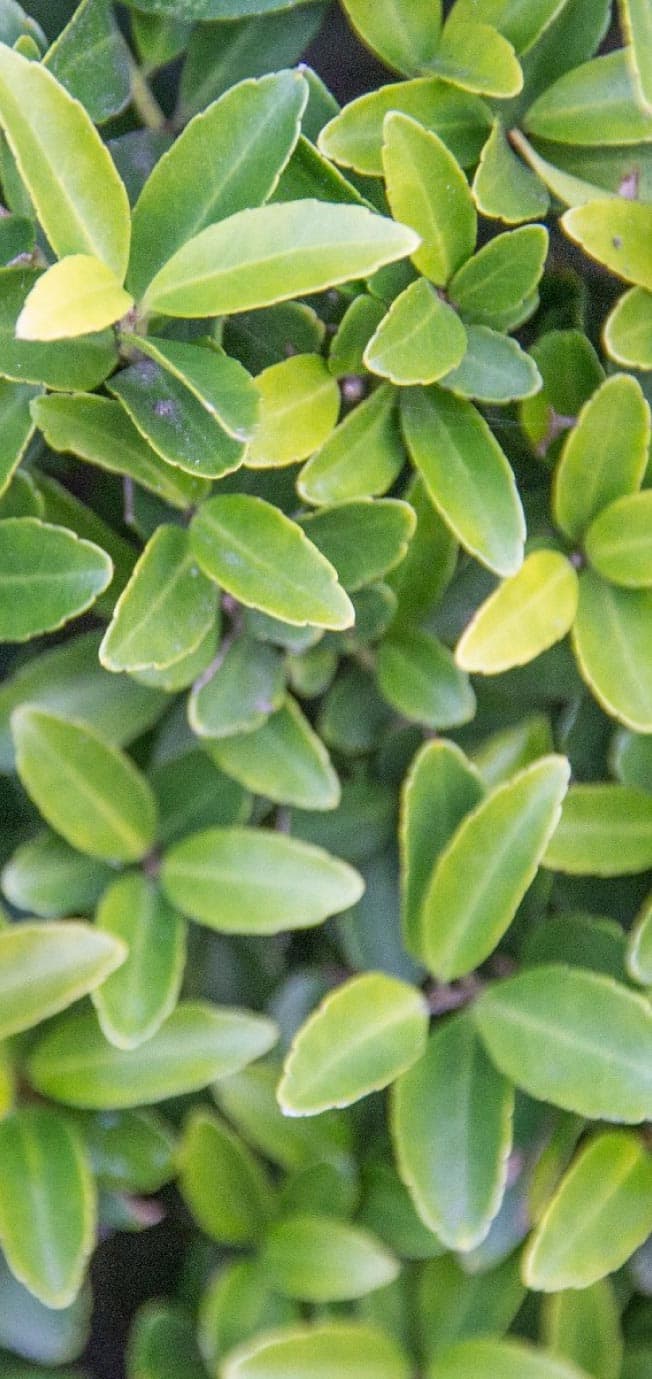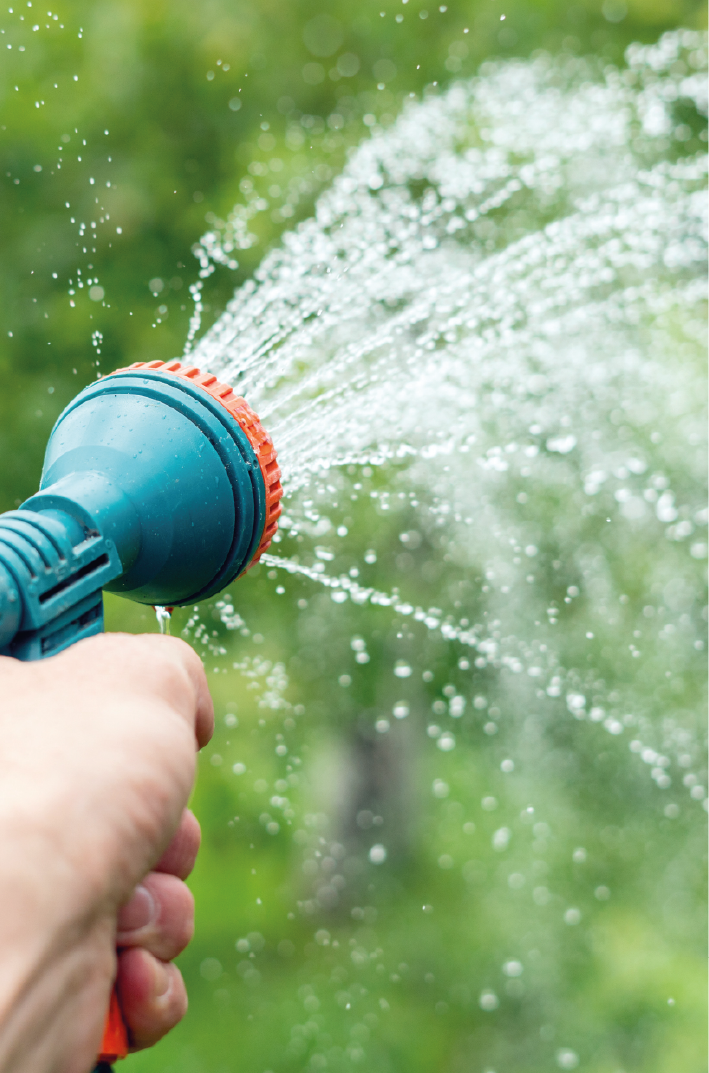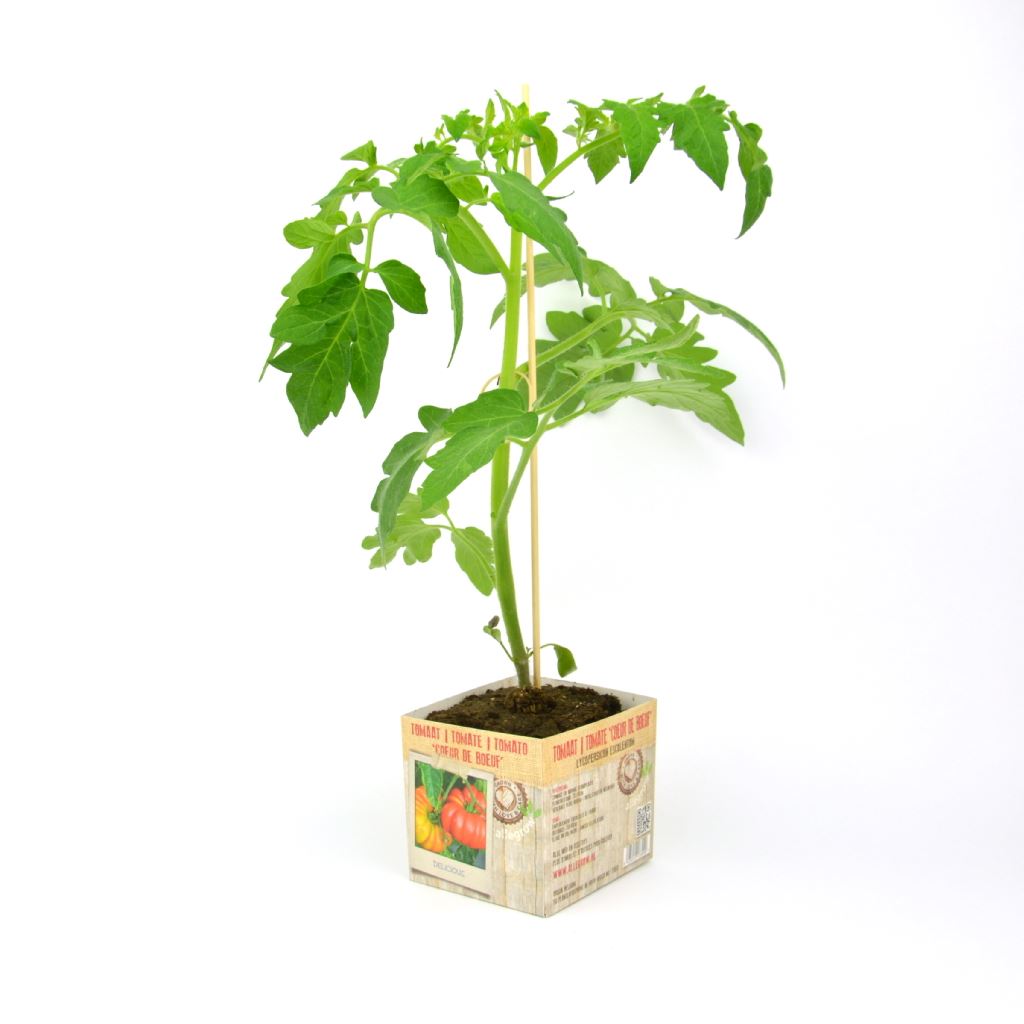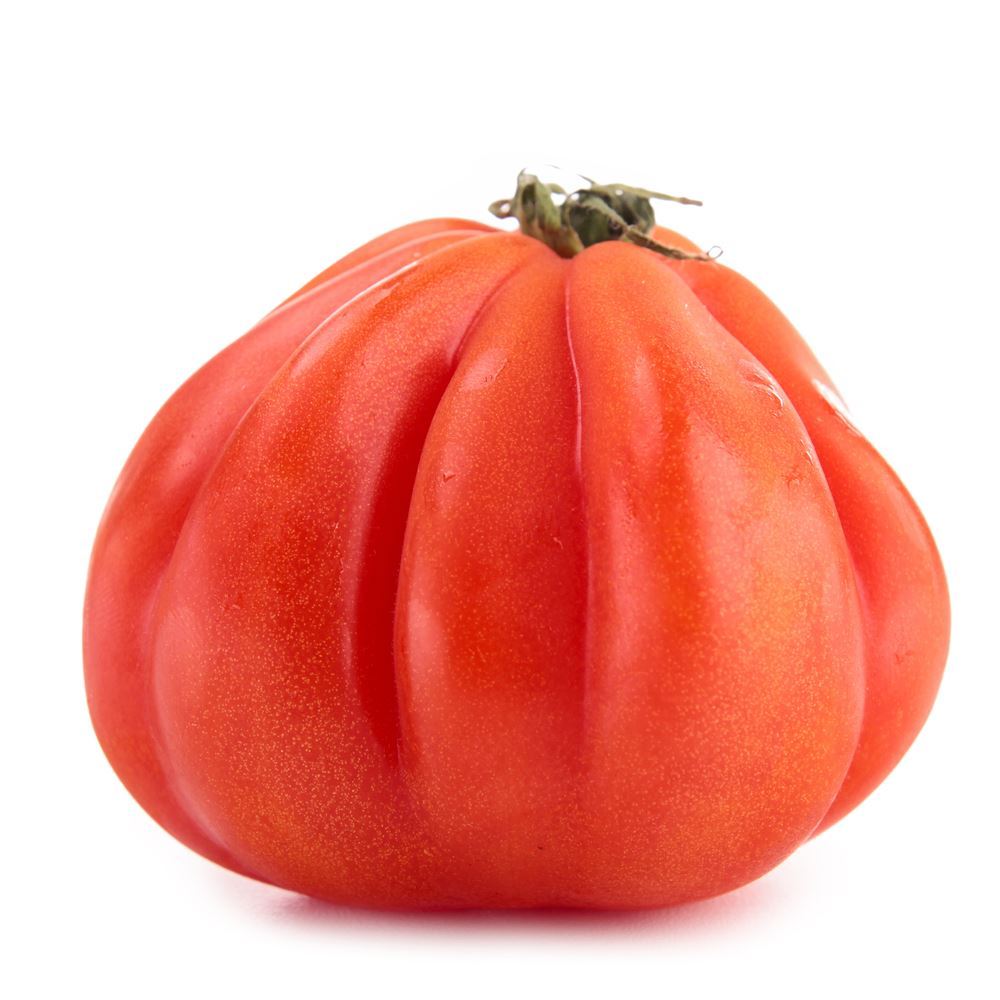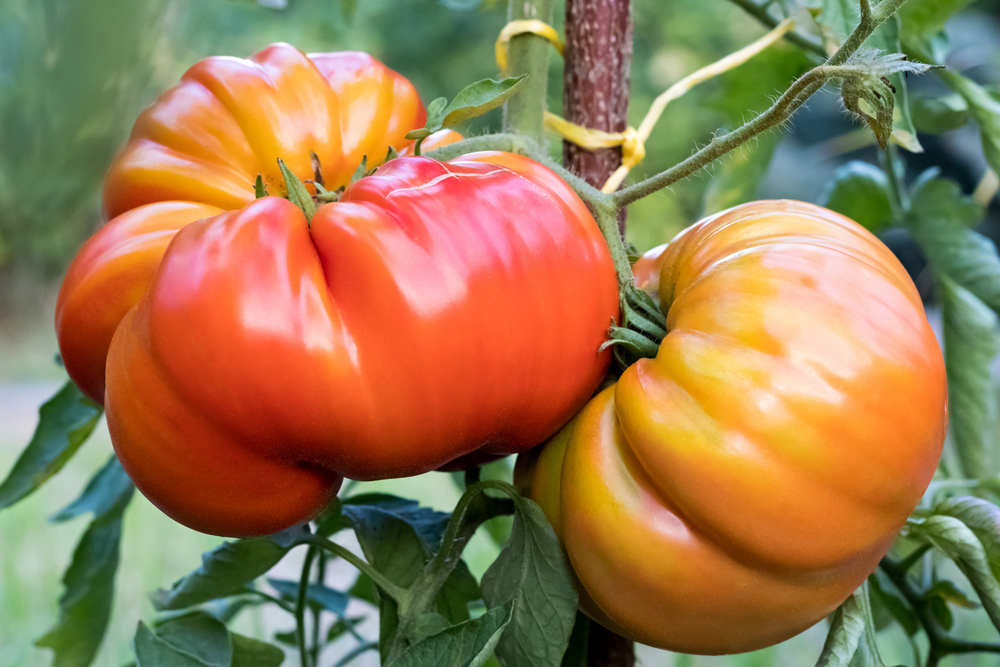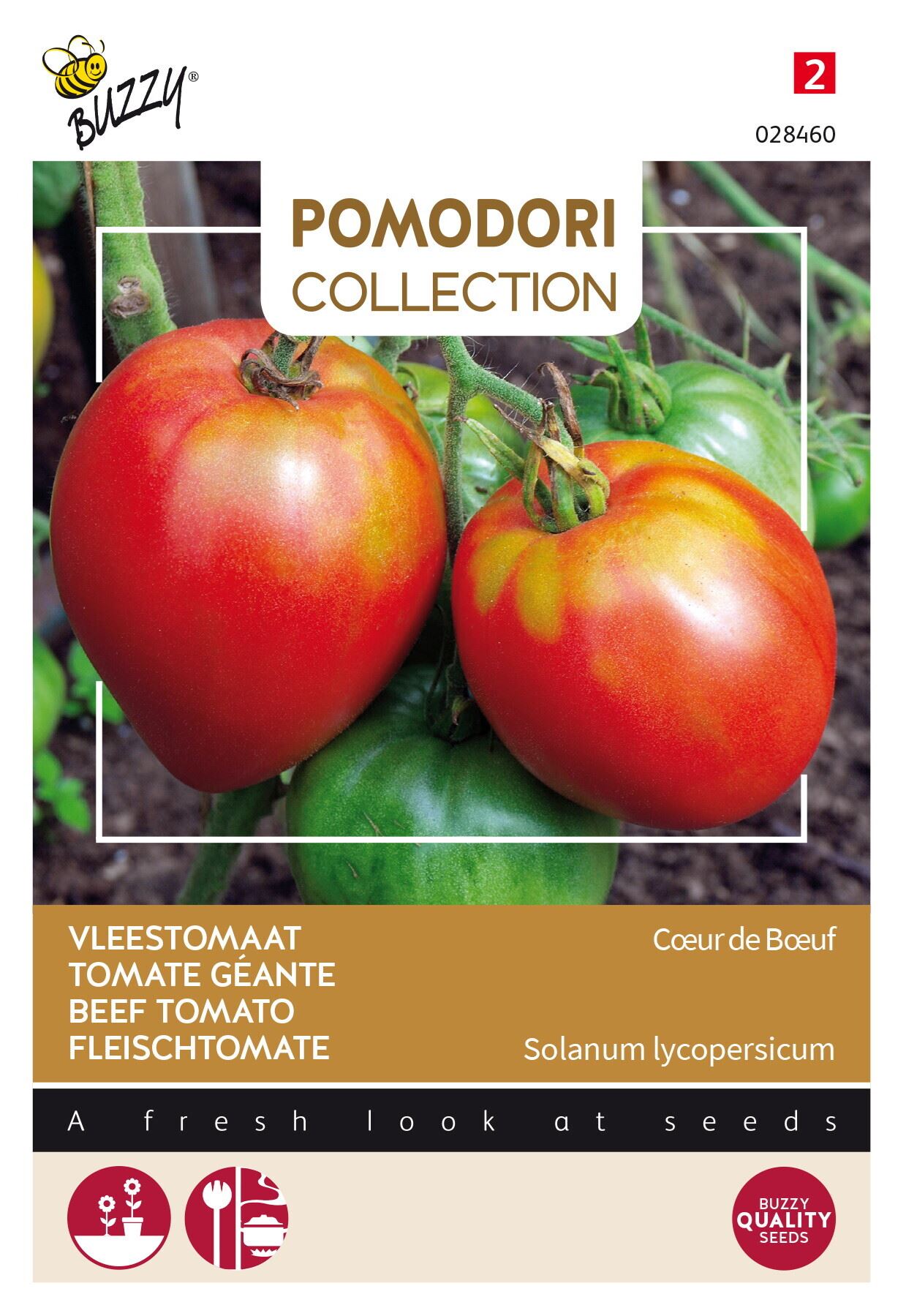Tomato coeur de boeuf, Oxheart - pressing block 10x10 cm - sown plant
Tomato ox heart - Coeur de boeuf
Product information "Tomato coeur de boeuf, Oxheart - pressing block 10x10 cm - sown plant"
Cœur de Bœuf (literally: ox heart) is a reference to the fruit shape of this tomato plant. This is a tomato variety which you can find in shops especially when travelling in the South.
Typical for Cœuf de Bœuf is the fact that the fruit colours from the inside to the outside. Its red internal colour with green pericarp gives a colourful sight when sliced. The green-orange tomatoes are crunchy with a slightly sour taste, the redder fruits are slightly fuller in flavour. Great for southern salads with mozzarella and olive oil... We can already taste the summer! 🍅
GENERAL:
The tomato is undoubtedly the most popular vegetable in Western cuisine.
The plant originated in South America, from where it spread all over the world.
It belongs to the nightshade family and is closely related to various other cultivated plants such as potatoes, peppers, aubergines...
It is by nature a creeping, herbaceous and not winter-hardy plant that is nowadays cultivated as an annual.
All parts of the tomato plant (leaves, stem...) are in fact poisonous, except for the ripe fruits. The leaves are dotted with numerous fine hairs and glands, which give off the typical tomato smell when touched.
PLANTS:
There are currently an incredible number of different varieties of tomatoes in all sizes, shapes and colours.
A distinction can be made between seedfast varieties and hybrid varieties.
- The seedfast varieties are the result of years of natural selection by growers or enthusiasts. The advantage of these varieties is that they can be seeded themselves (which also makes the seeds cheap). The disadvantage, however, is that the uniformity of the plants and fruit sometimes leaves much to be desired and the production is usually relatively low.
These varieties are still only used by amateurs. You can usually find them in various small packages in garden centres.
- Hybrid varieties are produced by specialised seed companies by crossing different so-called "parent" lines. These varieties guarantee a much higher yield and have very uniform fruit. However, the seeds are much more expensive and no seed can be obtained from them. In professional horticulture only hybrid varieties are used. Every year new varieties still appear on the market with even better or different characteristics: higher production, better taste, rounder, thicker, special shapes or colours. These varieties are not freely available for amateur use.
The best guarantee for a good start of your cultivation is good plant material.
Our plants are always warmly cultivated and we only use recent, high-quality hybrid varieties from professional horticulture.
CULTIVATION TIPS:
General
- Tomatoes can be grown both under shelter and outside. However, it is advisable to grow them in a greenhouse. Greenhouse cultivation will produce a much larger harvest and nicer fruit. Moreover, outdoor cultivation is much more susceptible to diseases.
- To avoid root problems, a good fruit rotation is necessary (1/4 year). If you have problems with soil fatigue, you better choose grafted plants.
- Planting out is possible from the moment the soil has warmed up sufficiently (preferably above 15°C).
- In practice this means that planting out in the greenhouse can usually be done from mid-April, in the open air it can usually be done from mid-May. After all, temperatures lower than 12°C will result in a standstill in growth.
- Planting earlier therefore does not mean that you will be able to harvest earlier!
- Tomatoes are real sunbathers, so give them a sunny & warm spot.
- The plant grows in just about any type of soil, as long as it is well-drained and rich in organic material.
- It is preferable to give it adequate fertiliser, with sufficient potassium. This ensures tasty, firm fruits with a beautiful colour. Too much nitrogen results in luxuriant (leaf) growth and problems with fruit setting.
- Aim for a planting density of no more than 2.5 plants/m² = planting distance 80 x 50 cm.
- Make sure that the root ball protrudes ± 1 cm above the ground when planting. Do not plant the root ball completely under the soil! This increases the risk of foot rot.
- Water generously immediately after planting (preferably heated to ± 20°C).
- Do not water directly at the foot of the plant, but in an excavated gutter or a dug-in pot next to it.
Support
- Tomato plants are grown climbing. In a greenhouse they are best supported by a rope.
- Fasten the rope at the top to the greenhouse construction and make sure it is sturdy enough, after all, a plant with fruit can weigh quite a bit.
- Regularly twist the stem around the rope so that it grows around it. With tomato clips you can easily attach the plants to the rope.
- Outdoors, you usually work with sticks or special twisted tomato supports.
Climate
- Provide an airy climate, so that the plant can evaporate and grow easily. This also reduces the chance of fungal diseases.
- Do not pour water on the plant.
Pollination
Tomatoes are self-pollinators. This means that the flowers must be pollinated with pollen in order to grow into tomatoes. In nature, the wind or insects do this job. In a hobby greenhouse, you have to give the bees a hand! It is therefore recommended to 'shake' the plants every 1-2 days. To do this, just tap the support stick or the rope to release the pollen in the flowers. It is best to do this in the afternoon.
Thieves
In ideal circumstances, a tomato plant will produce 3 new leaves and a new vine every week. In each leaf axil a new shoot appears, which we also call "thief". To avoid a dense and bushy plant with poor fruit set and many small fruits, the thieves must therefore be removed weekly. Take them between your thumb and forefinger, and break them off. Do this in good time, before the thorns are 10 cm long. In addition, always remove the leaves that sometimes appear at the end of a cluster.
Would you like to learn the tricks of the trade yourself? Then read our handy tutorial on thinning tomato and pepper plants!
Cross-trimming
Cross-pruning is recommended in order to achieve uniform growth and production. In other words, do not leave too many fruits on the plant at once.
- For beef tomatoes, it is best to grow a maximum of four to five fruits per truss.
- For vine tomatoes, seven to eight, depending on the size of the fruit.
- Cross pruning is not necessary for cherry tomatoes. Moreover, remove any deformed fruit at an early stage.
Plucking leaves
If the plant has sufficient vigour, the lower (yellowed) leaves can be removed to create a more airy environment. Remove leaves as far as under the currently ripening cluster. It only makes sense to remove other leaves if the plant is growing too luxuriantly (e.g. due to excessive nitrogen fertilisation). Only from September onwards is it sensible to remove leaves to expose the trusses and thus make use of the extra heat of the sun to ripen the fruit.
Tops
Normally the development from fruit setting to ripening of the fruit takes about 6 (in summer) to 8 weeks (at the end of cultivation). As it gets colder in autumn and further growth of the plant is not very useful, it is better to stop the growth in time so that the plant has enough energy to ripen the last fruits. The best way to do this is by topping the plant. To do this, remove the growing point above the last flowering cluster. In the greenhouse, it is best to top before the end of August. You can then harvest at the end of October. In the open air, it is best to top after 5 trusses, or ± end of July.
HARVEST AND STORAGE:
Tomatoes that have ripened on the plant taste best. Do not wait too long, however, as the fruit may crack or rot.
Of course, you can also harvest earlier, from the moment the fruits start to turn colour. Then place the picked tomatoes in an airy place, possibly with a piece of newspaper on top. They will automatically take on a blushing colour.
The picking is best done by hand. Take the fruit in the palm of your hand and press the thickened part of the stalk with your thumb so that the tomato breaks off. This also leaves the crown on the fruit, which makes it easier to store.
It is best to store tomatoes in a cool and well-ventilated place (preferably 12°C) and not in the refrigerator!
PROBLEMS AND DISEASES:
- Nose rot: rotten spots at the end of the fruit because the plant cannot supply enough moisture to the fruit.
This is actually not a disease but a deficiency symptom. You can read more about it in our article on nose rot.
- The potato blight or tomato blight (Phytophthera): brown spots on leaves, stem and then the fruit. This occurs mainly in warm & humid conditions. Read our tips to prevent the tomato plague!
- Spider mites, white flies, leaf miners
Product specifications
| Application / use plant: | Unknown - n/a |
|---|---|
| Bloom Month: | May, June, July, August |
| Bloom color: | Yellow |
| Branches / bark: | Unknown - n/a |
| Dutch plant name: | Coeur de boeuf tomaat |
| Frost resistance: | Not winter hardy |
| Fruit: | Unknown - n/a |
| Growth habit : | Unknown - n/a |
| Humidity/Soil: | Normal soil |
| Latin plant family: | Solanaceae |
| Leaf / Foliage: | Green |
| Location: | Halfshadow, Full sun |
| Minimum growing height (in cm): | 150 |
| Plant characteristic: | Tomatoes |
| Winter foliage: | Losing leaf |
| maximal growth height (in cm): | 250 |
| type of crop: | Vegetables |
| type of soil: | Normal soil |
Pictures of this plant
Reviews
Login

